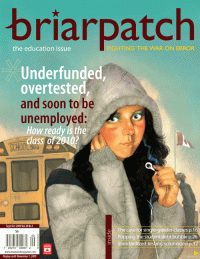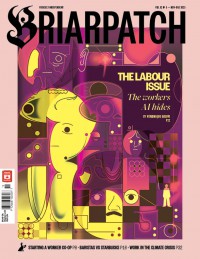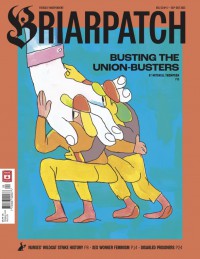
Responsibility to protest
In the wake of the global convergence in Copenhagen and looking ahead to the anti-Olympic demonstrations in February 2010, Briarpatch sets out to assess the state of social movements today. Where are the emerging opportunities for collective action and popular empowerment? What have we learned in the ten years since Seattle? How do we translate the convergences in Copenhagen, Vancouver or elsewhere into ongoing political pressure and social transformation?
-
 Magazine
MagazineLetter from the editor
As this issue goes to press, three thousand rallies are taking place in communities around the world calling for action in Copenhagen on climate change. In February, anti-poverty and indigenous rights activists will take to the streets of Vancouver to protest the Olympics.
-
 Magazine
MagazineWhat the right does right
Progressives in Canada today have no shortage of ideas. What we lack is movement — any movement. There is no women’s movement, no labour movement, no peace movement. The antiglobalization movement fell apart in the wake of 9/11. Copenhagen notwithstanding, even the environmental movement has become more an exercise in individual consumer choice than a demand for systemic change.
-
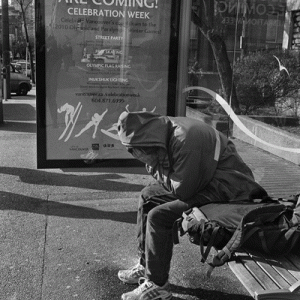 Magazine
MagazineSelling the Olympics in the schools
In the name of education, British Columbia has spent at least half a million dollars teaching wee ones the awesomeness of the Olympics. In response, Olympics opponents are trying to counteract what they call “pro-Olympic propaganda” by introducing classroom workshops of their own.
-
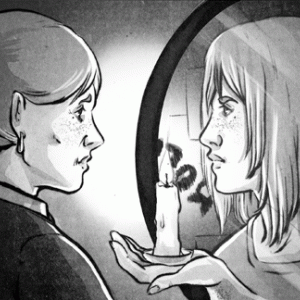 Magazine
MagazineWhen we were feminists
The day after the reunion, the subject line of Kelly’s email reads: “Did you hear?” On August 4, 2009, the same night as four university girlfriends and I had gathered for a 20-year reunion, a man walked into a gym in Bridgeville, Pennsylvania, and opened fire. The coincidence is surreal. My undergraduate girlfriends and I had planned the reunion as a memorial of sorts to mark the 20th anniversary of the Montreal Massacre.
-
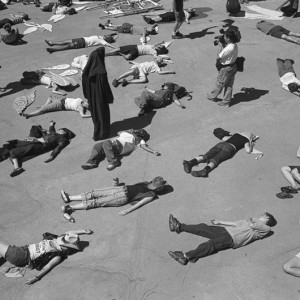 Magazine
MagazineMass protests and the future of convergence activism
Ever since tens of thousands of people converged on the streets of Seattle and successfully shut down the World Trade Organization in November 1999, convergences have been the tactic of choice for confronting global capitalism.
-
 Magazine
MagazineFrom invisibility to stability
The first step toward addressing an issue is to make it visible. An alcoholic will fail to get sober until he or she admits to having a problem. Slapping around one’s wife was not a punishable offence until it became socially and legally recognized as domestic violence. Visibility is gained through definition, and with visibility comes the power to create social change. Transgender and gender nonconforming people are just beginning to shed the cloak of invisibility that has shrouded their participation in social and political life.
-
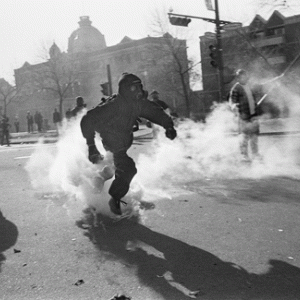 Magazine
MagazineCollective power
I have been covering demonstrations, protests and sit-ins as a photojournalist for many years. Documentation of protest was part of my work as the coordinator of the East Timor Alert Network between 1986 and 1992. One of the salient features of the modern state is the disconnect between the centralized bureaucracy of government and its largely fragmented citizenry, who have very little influence on decision-making between elections.
-
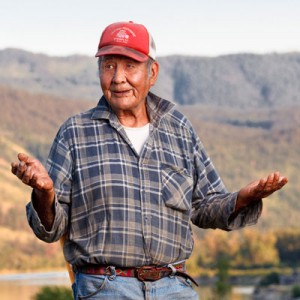 Magazine
MagazineWater fight in the Thompson Okanagan
“A lot of people have got their hearts broke, trying to make a living off this land without any water” Wolverine tells me. We are walking down the hill from his house towards a small field planted with flowering squash. His dog, Bingo, trails behind.
-
 Magazine
MagazineBoosters’ millions
The latest estimate of the cost of the Olympics to be borne by the public is $6.1 billion. This figure includes the expansion of the Sea-to-Sky Highway, the construction of the Richmond-Airport-Vancouver rail link, the expansion of the Vancouver Convention Centre, the construction of an athletes’ village and various venues, and a ballooning security budget. The two-week sporting event is set to be the most expensive entertainment spectacle in B.C.‘s history.
-
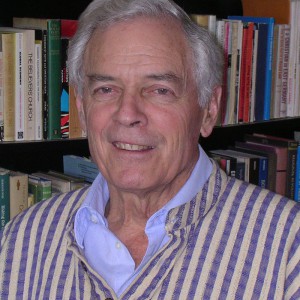 Magazine
MagazineFood politics and the tyranny of rights
It’s the end of October in Montreal. About 20 of us have stepped away from what could be the year’s last sunny autumn evening for an opportunity to hear from one of Canada’s most important elder activists and thinkers. Brewster Kneen is in town to talk about his new book, The Tyranny of Rights (Ram’s Horn, 2009).
-
 Magazine
MagazineCanada’s rebellious era
Canada’s 1960s is a magnificent achievement that distills the essence of the political and social upheavals that defined the 1960s in Canada. Palmer sets out to demonstrate that the 1960s transformed Canada in fundamental ways, and does so very convincingly.




